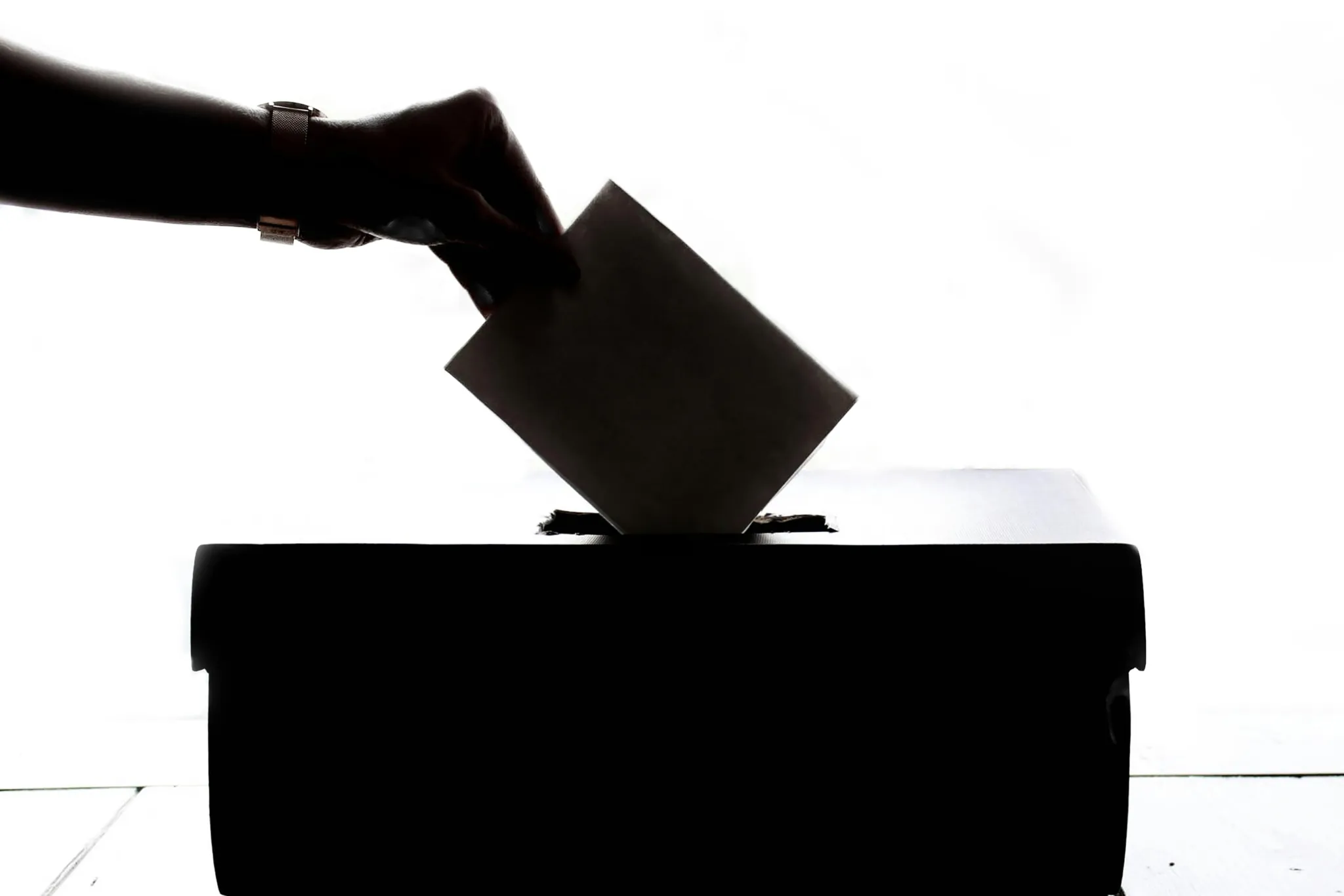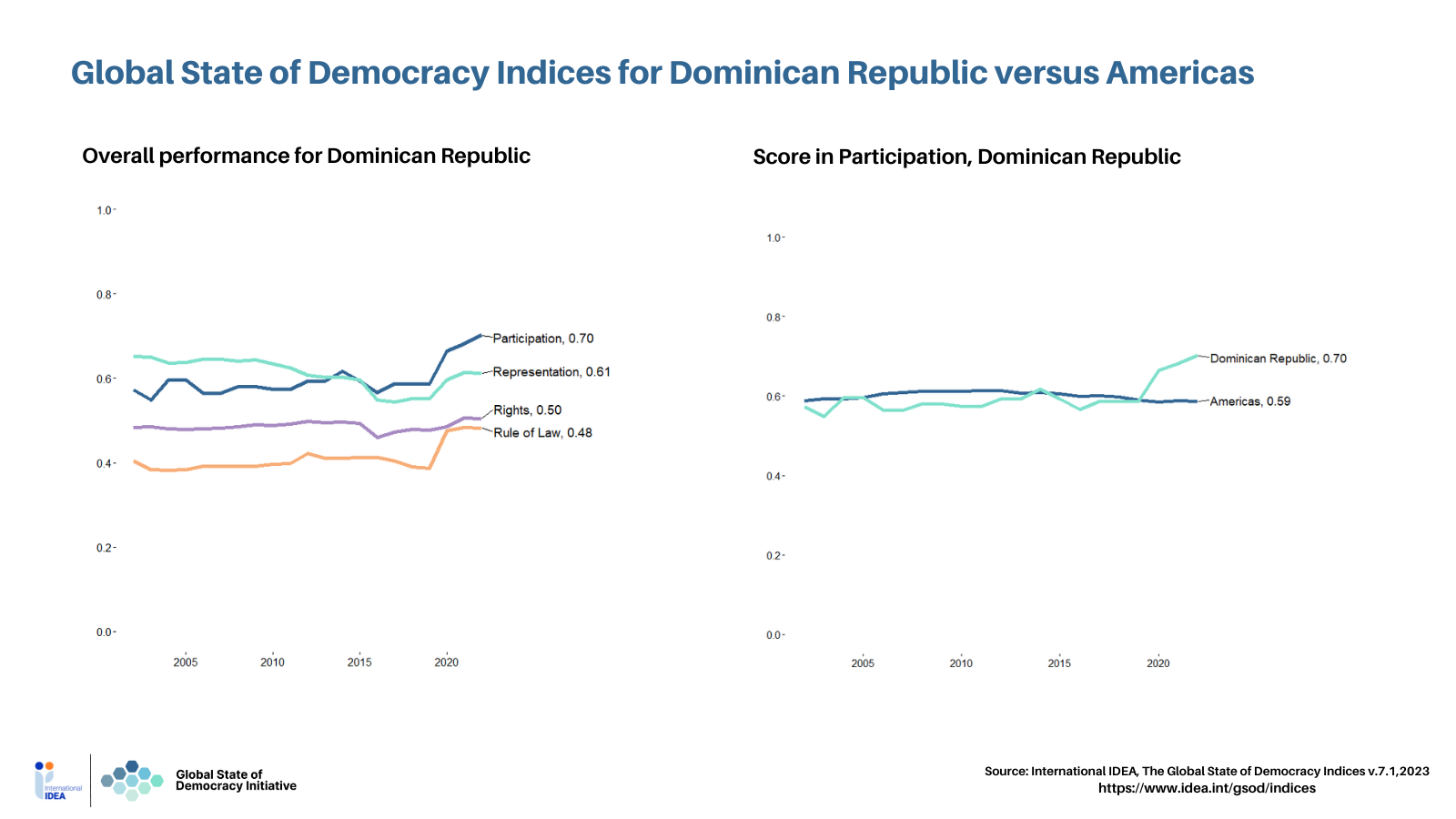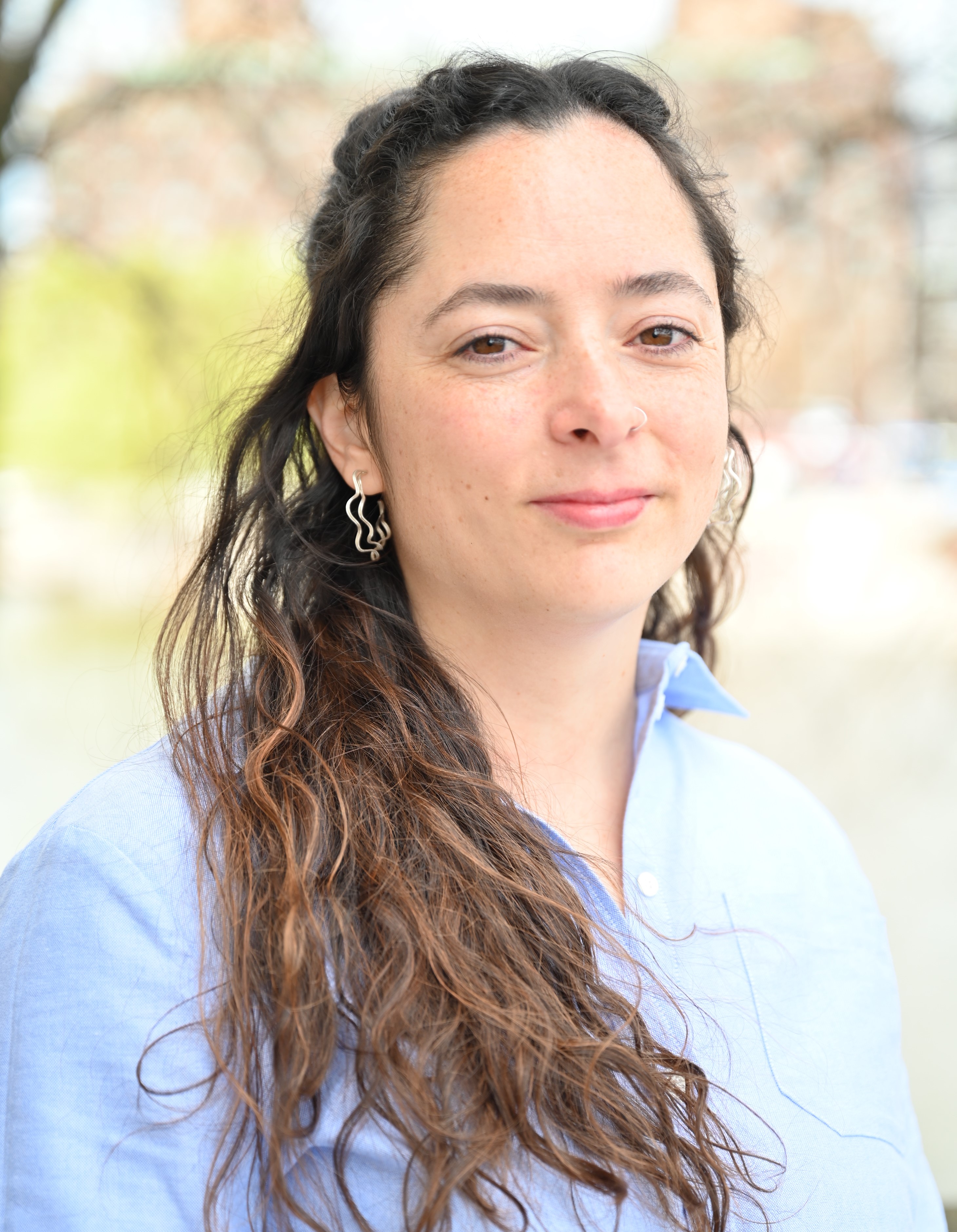
Explainer: Challenges and Opportunities for the Dominican Republic in the Era of Luis Abinader

Disclaimer: Opinions expressed in this commentary are those of the authors and do not necessarily represent the institutional position of International IDEA, its Board of Advisers or its Council of Member States.
Over the last five years, the Dominican Republic, a small country in the Caribbean, has experienced encouraging improvements in several aspects of democracy, turning the country into a positive anomaly in a region that has seen continuous deterioration in democratic values over the last five years. In this context, upcoming elections (on 19 May) will be a critical test of the ruling party’s track record. The presidential race is currently led by front-runner, incumbent President Luis Abinader. Abinader boasts extraordinary approval ratings, one of the highest in the region. This election will also have important implications for the Caribbean region, especially when it comes to migration and the ongoing humanitarian crisis in neighboring Haiti. But what are the key points in the upcoming polls?
What are Dominicans going to be voting for in May?
This May, the country will elect its next president and vice-president, along with 32 senators, 190 deputies and 20 deputies for the Central American Parliament (PARLACEN). If no candidate secures over 50 per cent of the votes, a run-off will take place on 30 June. These general elections follow local elections held in February this year, which resulted in a significant victory for the incumbent party.

Image: Luis Abinader in 2021. By Raquel Arbaje. Licensed under CC BY-SA 4.0.
Who are the competing candidates for the presidency and who is currently leading in the polls?
Recent polls show three out of nine registered candidates are leading the race for the presidential elections. Incumbent President Luis Abinader is at the top with 59 per cent support, which would be enough to win in the first round. A member of the Partido Revolucionario Moderno (PRM), Abinader has been president since 2020. He won the previous election on an anti-corruption platform. His tenure has been characterized by a pro-business attitude, a willingness to increase social expenditure and work for transparency.
Abinader will be running against former President Leonel Fernández of the Fuerza del Pueblo Party (FP), who follows him with 27 per cent support. Fernandez has served as president for three different past terms (from 1996 to 2000 and from 2004 to 2012). Fernandez´s platform has focused on wealth redistribution and social justice. He is known for his focus on infrastructure improvements on the island, including his role in the building of the metro system in Santo Domingo. Although Fernandez criticized Abinader's handling of relations with neighboring Haiti, he aligns with Abinader's overall restrictive approach towards immigration and shares the belief that the international community must play a more active role in addressing this issue.
Abel Martinez, the current Mayor of Santiago de Caballeros and a member of the Partido de la Liberación Dominicana (PLD), is the third leading contender with 13 per cent support. Unlike his rivals, Martinez is running for the presidential role for the first time. His campaign highlights his extensive public service record and successful tenure as Mayor. Like the other contenders, Martinez takes a firm stance on migration control, particularly concerning Haiti.
Who is Luis Abinader and how can we understand his strong popularity in the Dominican Republic?
Luis Abinader is a former businessman and politician. During the 2020 elections, Abinader presented himself as an alternative to the then delegitimized political establishment and a strong voice for transparency and anti-corruption. That campaign was a response to several corruption scandals that had shocked the country and had sparked mass demonstrations, demanding change and accountability.
During his term, he has been locally praised for his management of the COVID-19 pandemic, which attracted so-called pandemic-tourism, and for economic improvements. According to the Economic Commission for Latin America and the Caribbean (ECLAC), the DR is the second fastest-growing economy in Latin America and the Caribbean over the last decade. Economic growth has driven Abinader’s popularity, making him one of the most popularly supported leaders in the region (a recent poll found he had a 62 per cent approval rating). Simultaneously, his firm and stringent immigration policies, particularly concerning Haitian nationals, have garnered significant backing among the population.
How is the Dominican Republic doing in terms of democracy?
The Dominican Republic is an encouraging exception to broader regional trends of democratic decline over the last years, particularly with regard to improvements in measures of Participation. At the same time, the country shows positive improvements in Rule of Law and Representation, as reflected in the graphs below.
(Click to view enlarged figure on 'Global State of Democracy Indices for the Dominican Republic versus the Americas.')
These improvements have been driven by public protests which helped halt the constitutional reform that would have allowed presidents to run for third consecutive terms. Furthermore, citizen demonstrations led to the creation and implementation of new mechanisms for participation and dialogue with national stakeholders. Overall, the country has seen great development in areas like impartial administration, government accountability, and involvement of civil society. These changes present great opportunities and help the Dominican Republic stand apart from what is happening in the rest of the region.
What are the challenges that the country is facing and how will the incoming administration handle them?
One of the most significant challenges is how to engage with neighboring Haiti, a country in the midst of a severe humanitarian and political crisis. The Dominican Republic's decision to close its borders and to continue deporting Haiti citizens, including those seeking asylum, highlights ongoing tensions between the two nations. President Abinader's administration has settled on this restrictive approach, emphasizing the need to prevent “spillover insecurity”, blaming the international community for its inaction in the matter and stating that the Dominican Republic will not take sole responsibility for aiding Haitian citizens fleeing the country. Abinader has recently called for international support to help Haiti, warning that ‘either we fight together to save Haiti, or we will fight alone to protect the Dominican Republic’.





